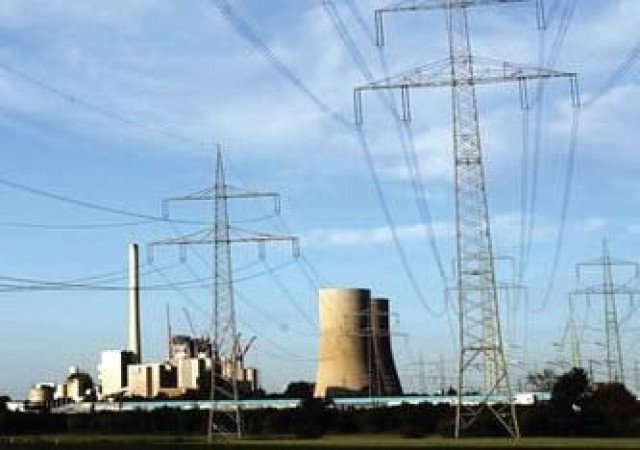NEPRA sees no relief from hours-long power outages
Electricity shortage causes annual loss of two per cent of GDP: annual report.

The country, which is facing up to 18 hours of power outages, has no relief in sight and is losing two to three per cent of gross domestic product (GDP) due to a power system weighed down by corruption and inefficiency, a report says.
The National Electric Power Regulatory Authority (Nepra), in its Annual Report 2011, observed that Pakistan is facing an acute shortage of electricity forcing people to stay without power for more than 9 to 10 hours in some cities and around 16 to 18 hours in rural areas.
Nepra, the power regulator, noted that though work on several electricity projects is under way, the shortfall is expected to reach 4,205 megawatts by year 2014 due to a power system plagued by corruption and imbalances in energy mix that has led to circular debt.
According to Nepra, the energy crisis has its roots in a number of issues including lack of integrated energy planning and demand forecasting, imbalance in energy mix with heavy reliance on oil and costly imported fuel, non-utilisation of vast indigenous resources eg coal and hydel energy and lack of effective planning, structuring and implementation of identified and viable projects.
“Violent protests over load-shedding have become a routine in different parts of the country and shortage of electricity has affected the industry and business,” the report said, adding traders have not been able to achieve export targets and thousands of industrial workers are facing job cuts.
The regulator did admit that the situation had aggravated to such an extent in Pakistan Electric Power Company (Pepco) that survival of power generation companies, the National Transmission and Dispatch Company (NTDC) and power distribution companies was at stake. On the other side, oil marketing companies (OMCs) and gas companies have not been able to get payments from independent power producers (IPPs) that minimised supply of electricity due to non-payment of dues by Pepco.
Karachi Electric Supply Company (KESC) has also not been able to operate power plants due to a decline in gas supply and has also been unable to arrange alternative fuel because of its weak liquidity position which is directly linked with circular debt. KESC has not produced at optimum capacity to avoid purchasing expensive furnace oil and preferred to purchase cheaper electricity from Pepco and NTDC that is clearly a downside of privatising monopolies. Nepra proposed arrangement of gas supply to end load-shedding in a couple of years.
Nepra noted that gas supply to power plants has declined and called for reversal of the trend in order to keep tariffs reasonable for consumers. It also underlined the need for a proper energy mix in a bid to keep prices of electricity affordable. Contribution of hydel energy, which was around 65 per cent in overall energy mix, has declined to 34 per cent only, disturbing the energy mix and leading to an increase in consumer tariffs. “Efforts should be expedited to reverse the energy mix towards cheaper hydel and coal resources,” the report said.
Under the current scenario, it is difficult to attract private investment in nuclear technology and China is the only country that is extending assistance to set up nuclear power plants, Nepra observed.
Published in The Express Tribune, October 2nd, 2011.



















COMMENTS
Comments are moderated and generally will be posted if they are on-topic and not abusive.
For more information, please see our Comments FAQ